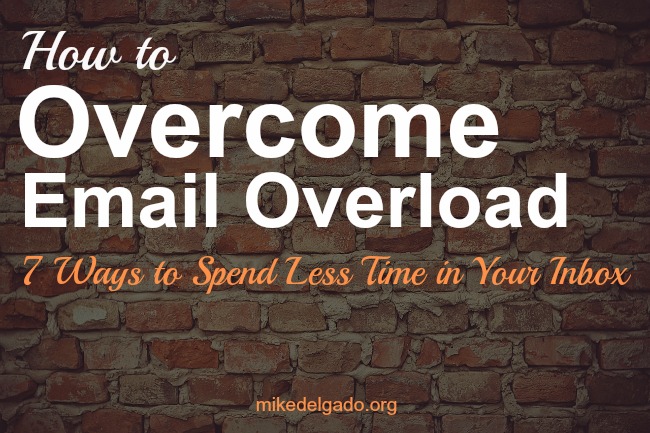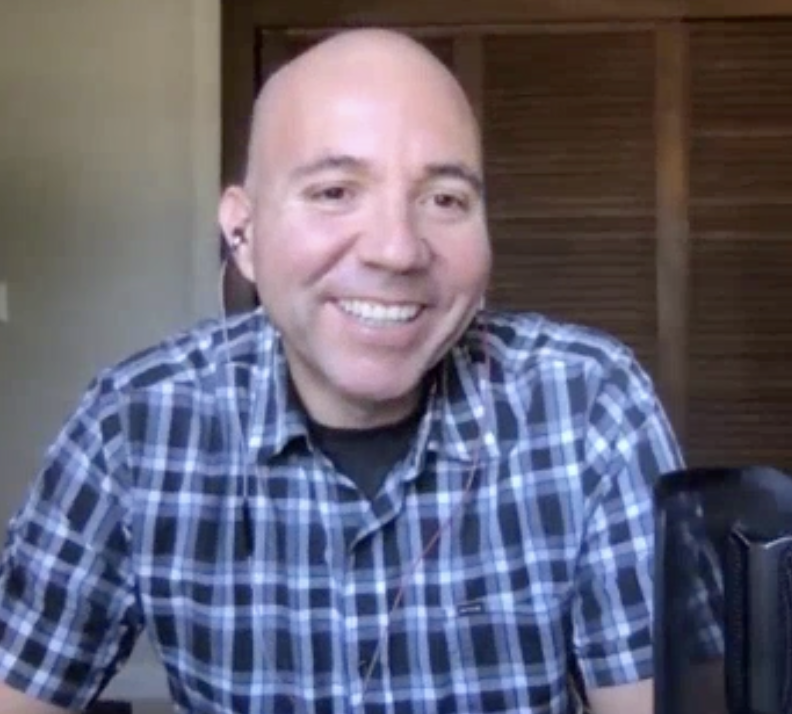
One of my goals this year is to spend much less time on email – which has been a productivity killer for me.
I began researching different strategies to cut down my time in my inbox and want to share some strategies that I’ve learned lately.
First, some fascinating facts about how email kills our productivity:
According to a July 2012 McKinsey Global Institute report on “the social economy,” the average knowledge worker now spends 28% of her work time managing email. If you work 50 hours per week, that’s 14 hours stuck in the inbox. – CNN
A study on a group of workers at Microsoft took, on average, 15 minutes to return to serious mental tasks, like writing reports or computer code, after responding to incoming email or instant messages. They strayed off to reply to other messages or browse the web. – New York Times
In 2005, a psychiatrist at King’s College London did a study in which one group was asked to take an IQ test while doing nothing, and a second group to take an IQ test while distracted by e-mails and ringing telephones. The uninterrupted group did better by an average of ten points, which wasn’t much of a surprise. What was a surprise is that the e-mailers also did worse, by an average of six points, than a group in a similar study that had been tested while stoned. That’s right. Stoned. Those people were literally burned out, and they did better. – New York Magazine
If you’re the type to meticulously file your emails in various folders in your client, stop, says a new study from IBM Research. By analyzing 345 users’ 85,000 episodes of digging through old emails in search of the one they needed, researchers discovered that those who did no email organizing at all found them faster than those who filed them in folders. – MIT Technology Review
Here are 7 ways that I’m reducing time in my email:
1. Turn off email notifications (and any instant messaging) to help you stay on task.
One study found that the average email user gets 147 messages per day – and if you’re getting email notifications for each one – that can be terribly distracting. It’s most ideal to turn off all email notifications so that you don’t get distracted by pop-ups and other alerts each time you get an email. I turned off my notifications last month and noticed that I’m able to focus on my projects better now. The only emails that I get alerts for are ones that my boss sends to me (in the “To” line).
2. Automatically filter any email with the word “unsubscribe” and route into a folder.
My friend David Natalizia told me that he drastically cleaned-up his email inbox just by creating a filter for the word “unsubscribe.” Once I did this, I saw my inbox shrink by almost a third since random newsletters and spam were skipping my inbox and going into my “unsubscribe” folder.
3. When you can answer an email in a two-minutes or less, answer it after reading.
Don’t delay responding to email if you can answer it quickly. It’s just a waste of time to have to go back, re-read that email a few hours or a day later. Just answer it right away and move on.
4. Use less folders in your email inbox to save you time when sorting and reading.
I started going through my inbox and deleting a bunch of folders that I wasn’t using (or didn’t think necessary). The less folders you’re using, the less time you need to think about where to file it. A simple way to create folders is just based on time-sensitivity and priority level (e.g. Today, Not Today, File Away). It’s not practical for everyone to use only a handful of folders, but it has helped me cut down time on email organization. Besides, I can easily find emails using search functions.
5. Select certain times in your day when you’ll check your inbox and respond.
It would be great if you could just check your inbox three times a day, but that’s not realistic for many people. I work as a social media manager and need to be ready to respond to an email about an issue quickly. Right now, I’m choosing to check my email inbox every hour so I can respond in a timely fashion on important issues. On some days, I’m checking every 2 hours (which helps me get more done).
6. Don’t reply all when you don’t need to (since that will probably add to your inbox clutter).
If not everyone needs to see your response, don’t send a message back to everyone. Just reply individually to those that need to hear back from you. Replying all might just multiply responses back to you. Use your best judgement on when to reply all.
7. Save time by keeping your emails brief (with main request in subject line).
Save yourself time (and others who need to read your message) by keeping your emails brief. Keep your request or action item in the subject line if possible so that people don’t even have to read your email to know what you need.
How have you improved your email productivity? Please share your tips with me.


One Response to Overcome Email Overload: 7 Ways to Spend Less Time in Your Inbox